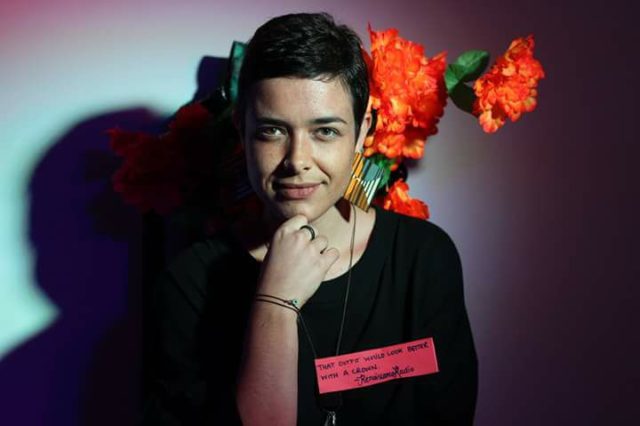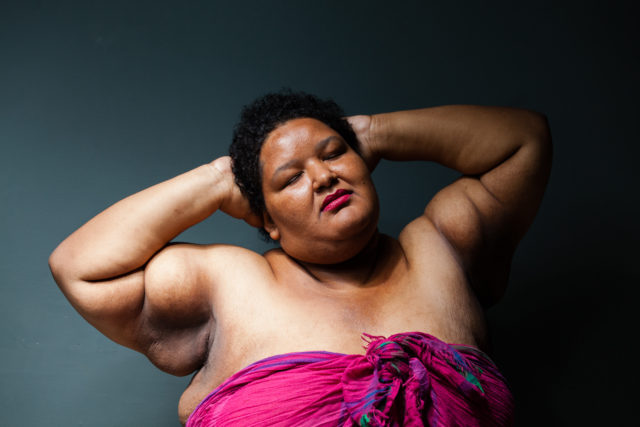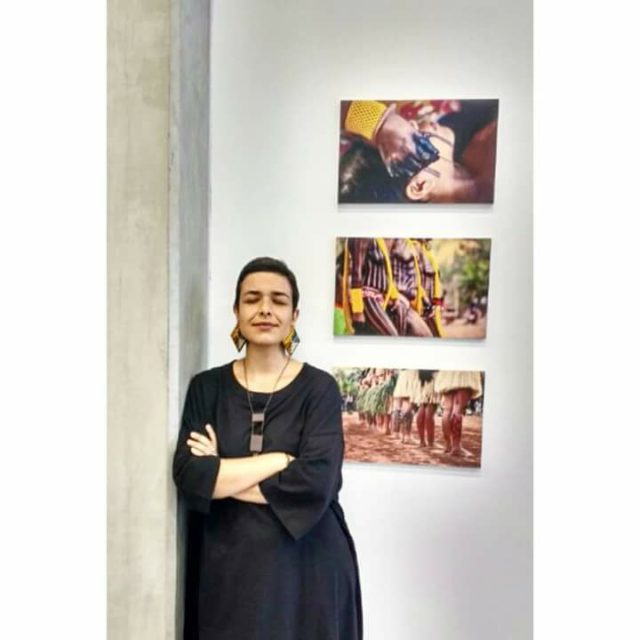Welcome to “Seven Minutes in Heaven,” GO Magazine’s brand new interview series that profiles a different queer lady each day, by asking her seven unique (and sometimes random) questions. Get to know the thoughts, feelings, and opinions of the groundbreaking, fierce forces-of-nature in the queer community.

There are some people who were born to create—Maria Ribeiro is one of those women. Her creative vision is unique, intentional and has a strong message. She wants women to feel uplifted and beautiful in their own right, without photoshop or retouching. When Ribeiro is behind the lens, you can tell that she is giving power back to woman she is shooting.
When I first met Ribeiro is was through a project of mine speaking out against sexual violence. She spoke so eloquently about how capitalist structures and marketing destroys young girls self esteem. How these systems perpetuate dangerous ideals for women to uphold—and funnel their money into.
I couldn’t say it better myself, so without further ado I give you our “Seven Minutes in Heaven” with Maria Ribeiro.
GO Magazine: Who are you and what do you do?
Maria Ribeiro: I am a Brazilian feminist photographer and filmmaker. I work with women empowerment projects, body positivity and photoshop-free photography. Through these tools I am working to contribute for more diversity in the images of women in the media, so we can actually feel represented. To feel represented is extremely important when we talk about acceptance, self-love and connection with our own bodies. Beatriz Giacomo said: A woman who does not love herself can never be free. And the system makes sure women do not love themselves. Ever.
The whole propaganda that makes women invest a lot of their time, energy and money trying to achieve an impossible body is part of the patriarchal society we live in. It’s a system designed to make us passive and constantly unhappy. This way, not only the beauty industry makes thousand of dollars in expense of the insecurity they sell us, but also we are not investing our time and resources into questioning them. And we are not talking about it nearly enough.
They trick us into thinking that we need to look that way in order to deserve love. Especially self love. But when we get to break it down and fill the media with images of real women: white, black, brown, queer, trans, fat, skinny, older, younger—we can understand that we all are represented, that there is not one only way to be beautiful and we all deserve to love ourselves. Then we will have a society formed by women that love themselves and are, therefore, able to be actually free. This is the point of all the work I do.

GO: Have you always been drawn to photography as your form of creative outlet?
MR: I like telling stories and I have done it in different ways during my life. I write, I shoot films and I do photography. There are all tools to tell the stories I think that need to be told and pass the messages I feel that need to be passed. That how I interact with the world that surrounds me.
GO: Where do you go for inspiration when you’re feeling discouraged or depleted?
MR: To be honest I can go for a walk, especially being in contact with nature can help, but what really works is going inside of myself. When I am feeling not motivated or empty usually it’s because something is not processed, I am struggling with some issue or I have not given myself time to understand how I feel about something. Once I work on it or figure it out, energy comes back to flow and I get back to my projects. Sometimes it can take a while, but it’s a inevitable process I need to go through.

GO: Who are your queer role models?
MR: Maria Bethania (it’s a Brazilian interprete and singer). She is not a photographer but she is, in my opinion, a complete artist. She really touches me in a very special way, everything she does is so tasteful, so high quality and so special. I always say that our art is a part of us, it’s formed by everything we saw, we felt, we loved and we lived.
GO: Why is it important to create more space for non-photoshopped images of women and queer people?
MR: I think I answered this in the first question. Representation matters.
GO: What are you listening to right now?
MR: Maria Bethania 🙂
GO: Where can people find you?
MR: www.mariaribeiro.me
Facebook: facebook/mmariarib or facebook/nosmadalenaspage
Instagram: mmariarib
email: contato@mariaribeiro.me

What Do You Think?